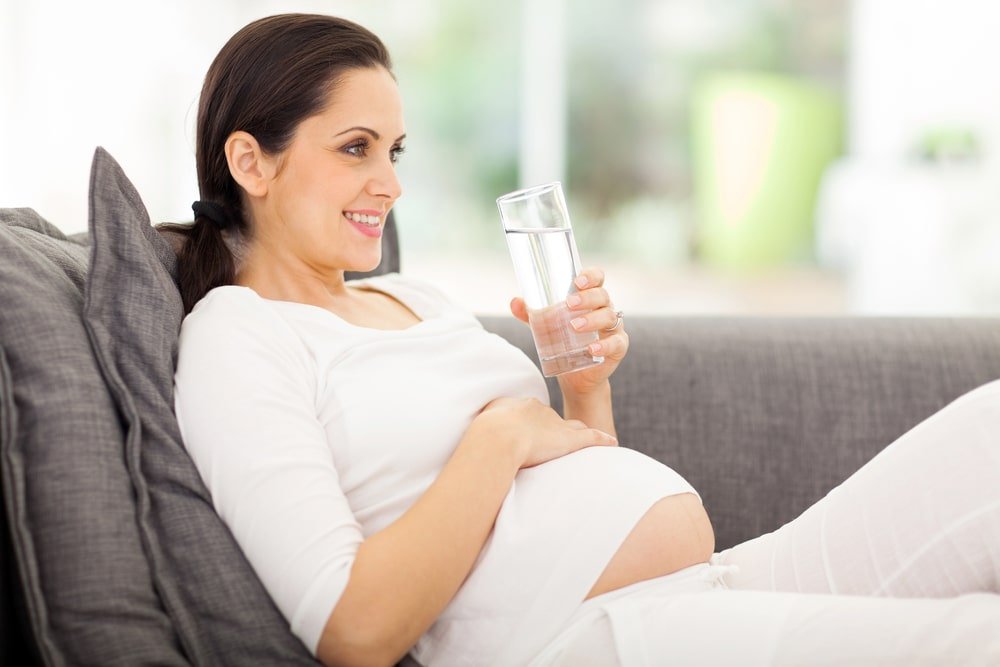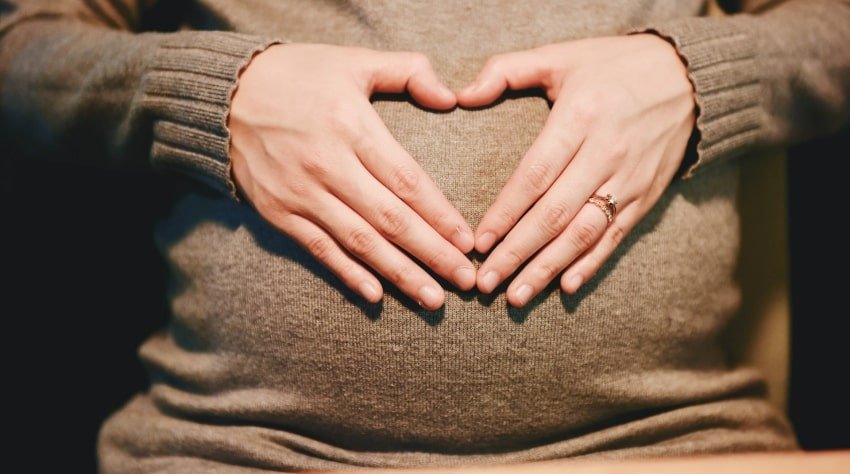You are pregnant and are overjoyed with the prospect of becoming a parent. Keeping yourself healthy for your new baby should be high on your list of priorities. But now you have so many questions, what can you eat? What can’t you eat? Can you drink coffee? What about soda pop?
The question we are going to answer here is whether or not you can drink Sprite while pregnant.
View in gallery
In A Nutshell
Yes, you can drink Sprite while you’re pregnant without adversely affecting the health of either your baby or you. But like many other things, you need to do this in moderation because consuming large quantities of any beverage can have an impact on both yourself and your baby.
Factors To Consider
You have many factors to consider when deciding on whether or not the amount of Sprite or any other carbonated drink is beneficial to your baby and you. That is, besides just curbing a craving that you have at that moment in time.
Knowing the facts can help you better understand the process your body is going through and also help you to make the best decisions right from the start.
View in gallery![]()
Sugar
Sugar is a concern especially in drinks like Sprite. There is 33 g of sugar in a 369-gram can of Sprite which as a woman is more than your recommended daily sugar intake, according to the American Heart Association.
This can have worrying consequences for your baby and you such as:
- Increased risk of preterm labor
- Increased risk of obesity
- Increased risk of diabetes
- Increased risk of asthma
- Increased risk of learning difficulties
- Difficulty with problem-solving
- Lower intelligence
With increased risks of the above conditions, it is understandable why there are so many concerns about the sugar content of drinks such as Sprite.
Calories
One of the biggest issues when consuming any carbonated drink is the empty calories that they contain. I know that you will hear the saying “eating for two” an awful lot when you are pregnant especially from the older generations, but this is not scientifically accurate.
During your pregnancy, you only require additional calories in the last two trimesters, and daily that should only be an extra 300 calories. This is equivalent to the calories you would find in a McDonald’s Cheeseburger.
It would be more sensible to add these extra calories in the form of healthy food choices such as a mid-afternoon snack of fruit and protein. This will help stabilize your blood sugar and help keep the light-headed or tired feeling at bay.
Why are extra calories so much of a concern?
The weight that you gain during pregnancy puts pressure on your body in many different ways. By adding stress to your liver, pancreas, and your joints, gaining too much weight can also increase the health risks to your unborn baby. These include being born significantly larger than average which in turn can cause complications at birth like shoulder dystocia or preterm birth.
The recommended weight gain during pregnancy is based on your BMI. If you had a BMI of 18.5-24.9 before pregnancy then you should gain between 25-35 pounds. If your BMI was between 25-29.9 you should aim to only gain between 15-25 pounds.
You must also remember that the more weight you gain during pregnancy, the more you may want to lose after, presenting you with a huge hill to climb at a time when you have little time for yourself.
Those empty calories will also quickly eat into your daily calorie allowance preventing you from eating a balanced diet. With a daily calorie allowance of 2300 (recommended daily total) in the last two trimesters, you need to make good food choices of fresh fruit and vegetables, lean protein, and whole grains.
View in gallery
Caffeine
Before you became pregnant, caffeine was probably your go-to pick me up after a long day or early morning. You never questioned how much caffeine you were actually consuming. Unfortunately, when pregnant, this is something you have to consider carefully and even limit if you are going way over the recommended daily allowance.
Studies have shown that there is a link between the amount of caffeine consumed during pregnancy and higher instances of miscarriage, delayed conception, and even birth defects. Many of these studies have produced conflicting conclusions that provide no definite answer to how much caffeine is safe and sensible to consume during pregnancy.
With this in mind, the March of Dimes states that pregnant women should limit their caffeine intake to less than 200 mg per day.
A huge plus for Sprite is that it contains no caffeine so it does not contribute to your daily caffeine intake, but this does not mean it can be consumed without restriction.
Artificial Sweeteners
You may think that opting for the artificially sweetened alternative of your favorite drink is a good option that will eliminate those empty calories and huge sugar content. Unfortunately, that is not the case. Those artificial sweeteners pose their own health concerns for pregnant women such as preterm labor.
A study of 60,000 pregnant Danish women found that those women who consumed just one serving of artificially sweetened carbonated drink per day were 38% more likely to give birth before 37 weeks (preterm labor) and those who consumed four servings per day were 78% more likely to give birth prematurely.
Cravings
Many pregnant women crave high sugar, carbonated drinks when they are pregnant. Cravings are still a bit of a mystery. The reasons why pregnant women crave certain foods and drinks such as cakes, candy, or fizzy drinks could be due to a huge hormonal shift that occurs during the first and second trimesters.
There is a belief that says craving sweet things during your pregnancy means you are carrying a baby girl. If you are craving salty or sour snacks then you are carrying a boy.
I’m not sure there is any truth in this and there have certainly not been any conclusive studies to prove that what foods or drinks you crave is an accurate predictor of the sex of your unborn child.
Heartburn
Heartburn during pregnancy is a very common occurrence. It usually affects most women in the third trimester of their pregnancy. Rennie has stated that it affects as many as 72% during that third trimester.
According to Rennie, the symptoms of heartburn during pregnancy are:
- pain behind the ribs
- a knotted stomach
- a burning sensation in your chest or throat after eating
- a hot sour or salty-tasting fluid in the back of your throat
- difficulty swallowing
Unfortunately, there is no way to ensure that you will not suffer from heartburn during your pregnancy. What you eat and drink will play a huge part in how severe and frequent it is.
Drinking carbonated or fizzy drinks towards the end of your pregnancy, when you are particularly sensitive, can cause severe heartburn and indigestion. It is a combination of the carbonated water and sugar that is likely to worsen your heartburn.
Safe Alternatives
There are many safer alternatives than fizzy drinks while you are pregnant. There is water, which helps your body absorb essential nutrients from your food. It is these nutrient-rich blood cells that essentially help to feed and nourish your baby.
There are also no calories or sugar in water so that is one way to avoid those concerns during your pregnancy. But like myself, many women find plain water very boring.
Other alternatives such as low-fat milk contribute to the 1000 milligrams of calcium that you require every day while you are pregnant. Although there are many other ways to get the calcium that you require, milk is one of the best with 300 milligrams in an eight-ounce glass.
If you are unable to drink dairy, you could always try fortified soy milk. It is a good alternative and has around the same amount of protein as dairy milk and is calcium-fortified.
Another good alternative is ginger tea, drink it hot or iced. It may also come with some added benefits. Studies have shown that ginger can be great for soothing nausea associated with morning sickness.
[amalinkspro type=”showcase” asin=”B07C773G88″ apilink=”https://www.amazon.com/dp/B07C773G88?tag=mominformedcom-20&linkCode=osi&th=1&psc=1″ new-window=”true” addtocart=”false” nofollow=”true” sc-id=”4″ imgs=”LargeImage” link-imgs=”false” specs=”HONORING GOD: We are Faithfully Female, Women-Owned + Women-Run, honoring God in everything we do.~~~PURE: Caffeine-Free + Ginger Root + Rooibos Tea naturally alleviates symptoms of morning sickness.~~~GENTLE: Formulated for mom & baby. Herbal Ginger-Orange Tea – enjoy it hot or cold!~~~PREMIUM: Relieves morning sickness + indigestion + cramps + nausea + improves hydration.~~~CLEAN: Made without GMOs, Gluten, Wheat, Dairy, Soy + More.~~~” btn-color=”#ff9900″ btn-text=”Buy on Amazon” alignment=”aligncenter” hide-prime=”0″ hide-image=”0″ hide-reviews=”0″ hide-price=”0″ hide-button=”0″ width=”750″]Pink Stork Morning Sickness Relief Tea[/amalinkspro]
But if you just can’t cope without the fizzy bubbles then you could try drinking fizzy water in a flavored or plain variety. Hopefully, that will settle your craving while not loading on the calories or sugar level.
Why hydration is important?
Staying hydrated during your pregnancy is essential and has huge health benefits for both you and your baby. The fluids that you drink to stay hydrated are now even more important as your body supports two lives.
Your body needs water to form amniotic fluid, which is the fluid that your baby is surrounded by during their time in your womb. This fluid protects them from bumps and allows them to easily move and develop their muscles and bones. The fluid that your baby swallows also helps with the development of their gastrointestinal tract.
View in gallery
Being hydrated also helps your body produce an increased amount of blood volume that it requires. This is almost 50% more than before you were pregnant! It also helps build new tissue and can help flush out wastes and toxins from your body, which is always a good thing!






